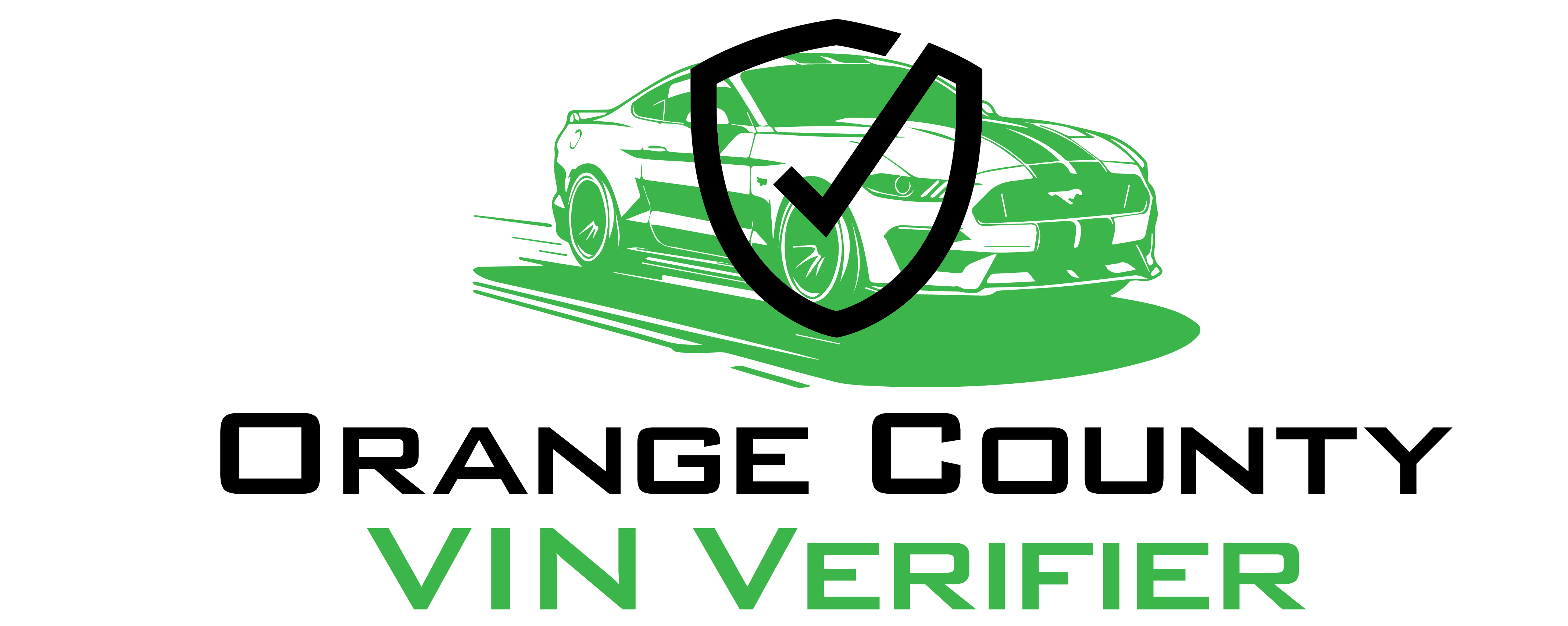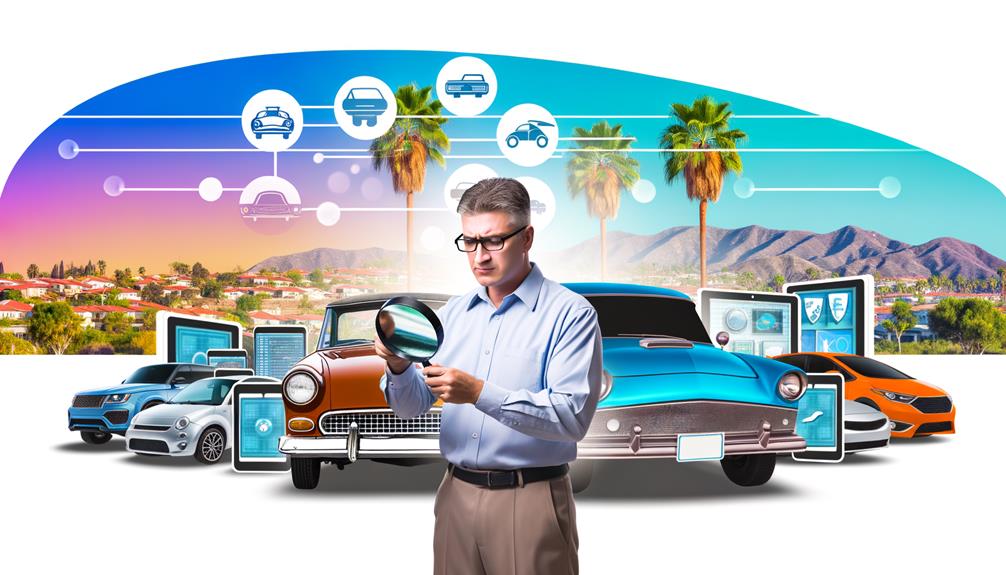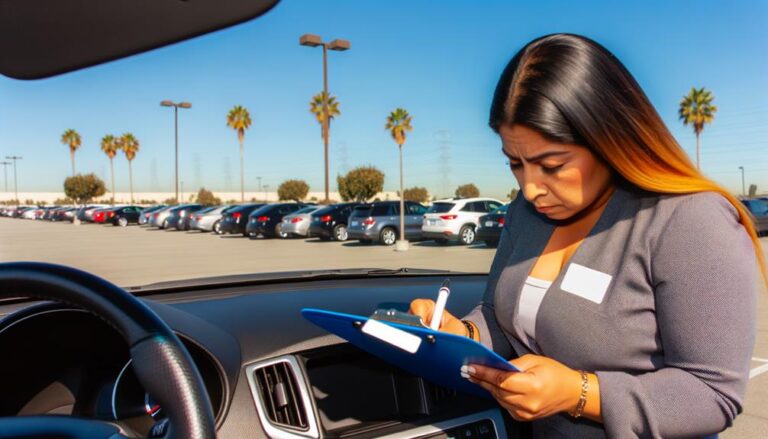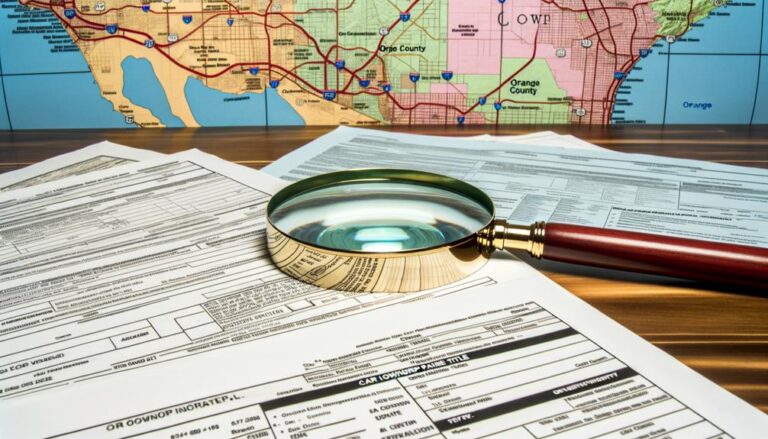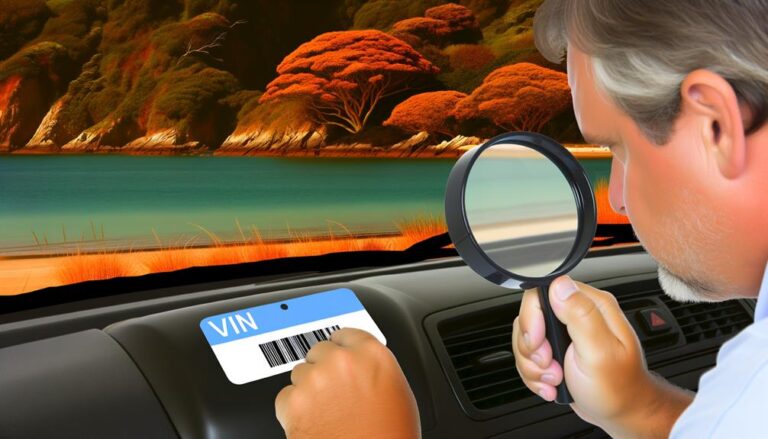VIN verification in Orange County started in the 1980s to counter vehicle theft and fraud. It's crucial for ensuring the Vehicle Identification Number (VIN) on your paperwork matches the actual vehicle, a process formalized with the California DMV's REG31 form. This is mandatory if you're changing vehicle configurations or fuel types. Over the years, legislation has restricted VIN verification to authorized personnel only, expanding its scope to include vehicles from tow yards and commercial trucks. Technological advancements have streamlined this process, ensuring accuracy and reducing errors. As of October 2023, it remains vital for registration. You'll find further insights on how these procedures impact vehicle safety and compliance.
Origins of VIN Verification
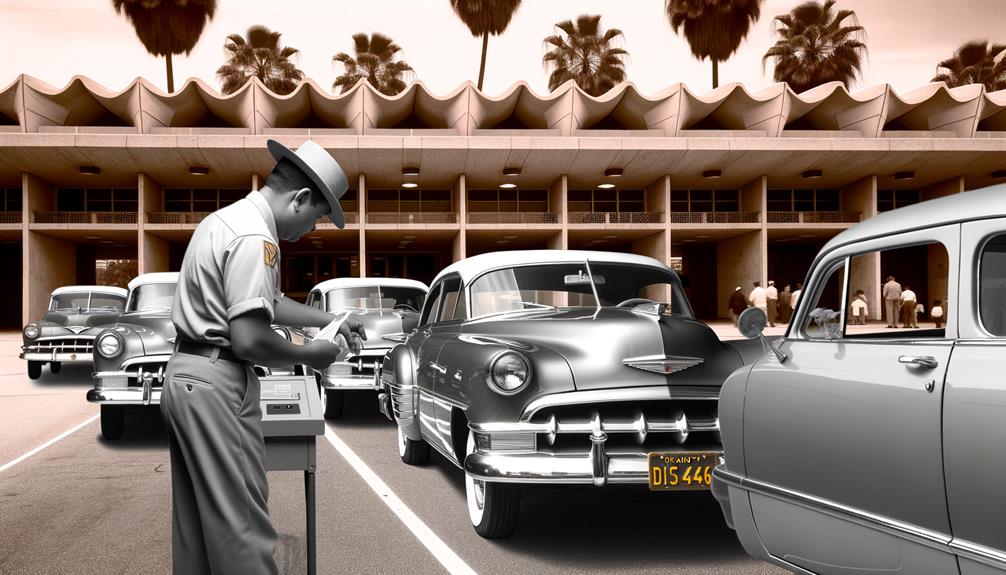
The practice of Vehicle Identification Number (VIN) verification originated in the 1980s, driven by a surge in vehicle theft and fraud. As you navigate the complexities of registering an out-of-state vehicle in California, it's crucial to understand this rigorous yet necessary verification process that safeguards your freedom to own and operate your vehicle securely.
The state implemented VIN verification to ensure that the VIN on your vehicle matches the documentation provided, significantly enhancing the integrity of vehicle records.
In Orange County, services like Quick VIN Verifications have streamlined this process, offering both in-office and mobile verifications. This adaptability ensures you can comply with state regulations without sacrificing your time or freedom of movement.
The introduction of the REG31 form by the California DMV formalized the details required for VIN verification, making the process more transparent and consistent. Additionally, VIN verification is mandatory for changes in vehicle configurations or fuel types, reflecting its broad applicability in maintaining vehicle compliance.
VIN verification serves as a critical safety assurance measure, confirming that vehicles aren't only properly documented but also legally cleared for registration. This is especially pivotal if you're bringing in a vehicle from another state, as it protects you from potential legal and safety issues arising from vehicle theft or record discrepancies.
In essence, VIN verification in California, and by extension in Orange County, secures your vehicle's compliance and your peace of mind.
Legal Framework Over Time
California's legal landscape has evolved to meticulously address VIN verification, ensuring your vehicle's identity aligns with official records before registration. The importance of this process is paramount in maintaining freedom from potential legal and financial consequences associated with vehicle theft and fraud. Here's how the legal framework has adapted:
1. 1986 Legislation: This year marked the introduction of a legal requirement for VIN verification specifically targeting out-of-state vehicles. This move was aimed at integrating these vehicles smoothly into the DMV framework while ensuring they met California's stringent standards.
2. Authorized Personnel: The California Vehicle Code clearly mandates that only authorized personnel can perform VIN verifications. This stipulation ensures that the process remains official and standardized, documented meticulously on the REG31 form.
3. Expanded Scope: Over the years, amendments have broadened VIN verification to include vehicles recovered from tow yards and commercial trucks, reflecting the growing complexities of vehicle registration and the need to curb illegal activities.
Additionally, the introduction of DMV Solutions has provided alternative pathways for registering vehicles that may lack traditional documentation, further enhancing the flexibility and accessibility of vehicle registration processes.
4. Ongoing Relevance: As of October 2023, VIN verification remains a critical legal requirement for vehicle registration in Orange County, underlining its enduring role in safeguarding your rights and freedoms on the road.
Technological Advancements

Several technological advancements have revolutionized the VIN verification process in Orange County, enhancing both accuracy and efficiency. The adoption of digital record-keeping systems has streamlined how you access vehicle histories and ownership records. This tech shift not only speeds up the process but also minimizes the chances of errors that could affect your vehicle's legal status.
Advanced scanning technology has further refined VIN verification. You now benefit from more precise inspections with a significantly reduced risk of human error, ensuring that the data reflects the true condition and legality of your vehicle.
Moreover, mobile applications have empowered authorized verifiers to perform on-site inspections. This flexibility offers you the freedom to have verifications done at your convenience, directly enhancing your experience and saving you time.
The enhanced connectivity and data sharing between the California DMV and local agencies ensure that VIN matches are more accurate than ever. This integration aids in maintaining a reliable registry, crucial for your vehicle's legitimacy.
Additionally, automated systems have cut down processing times dramatically, making it quicker for you to register out-of-state vehicles in Orange County. These improvements not only safeguard your vehicle's compliance but also streamline your interactions with regulatory processes.
Public Awareness Efforts
Why should you be aware of the VIN verification process? In Orange County, understanding this procedure is crucial not just for compliance, but also for your independence and security.
Public awareness efforts have been strategically developed to ensure you're well-informed and equipped to recognize and prevent fraud. Here's what's been done:
- Community Workshops: Local DMV offices have organized sessions that detail the steps of VIN verification, empowering you with knowledge to safeguard your vehicle registration.
- Social Media Campaigns: Platforms like Facebook and Instagram are utilized to broadcast essential tips on VIN verification and how to spot fraudulent activities, reaching you right where you engage daily.
- Educational Videos: Produced by the California DMV, these videos break down the verification process clearly and are distributed through community outreach programs, enhancing your understanding and vigilance.
- Partnerships for Access: Collaborations with entities like Quick VIN Verifications have facilitated accessible verification services during community events, promoting active engagement and awareness.
Through these initiatives, you're not just following rules; you're actively participating in a community-wide effort to combat vehicle theft and ensure a fraud-free environment.
Stay informed, stay secure.
Role of Local DMV
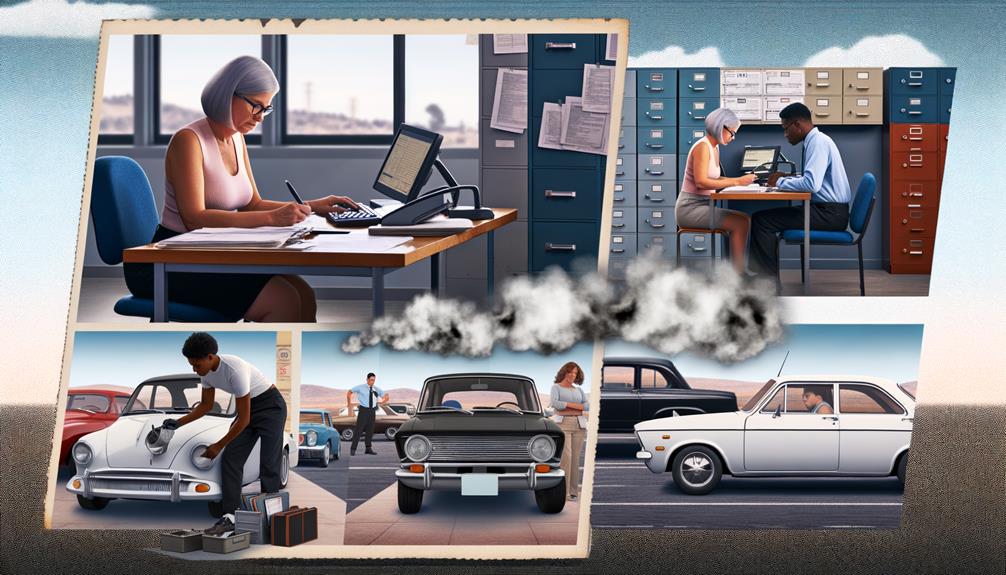
Building on the foundation of public awareness, the local DMV in Orange County stands at the forefront of the VIN verification process.
You're probably aware that this procedure is critical when you're bringing your vehicle in for registration. It's not just about compliance with state regulations; it's about ensuring that every car on the road is legally accounted for and its details accurately recorded.
At your local DMV, VIN verifications are conducted meticulously using the REG31 form.
This isn't just paperwork; it's a crucial step in maintaining the integrity of vehicle records. The form must be filled out by authorized personnel, ensuring that the VIN matches the vehicle in question and complies with all legal requirements.
This is your assurance against the risks of vehicle theft and fraud.
Impact on Vehicle Safety
Ensuring that each vehicle's identification number matches official records, VIN verification significantly enhances safety on the roads of Orange County. This meticulous process serves as a robust barrier against the circulation of stolen vehicles and fraudulent registrations, fostering a safer driving environment for you and your community.
Here's how VIN verification impacts vehicle safety:
- Detection of Stolen Vehicles: By matching VINs to official databases, stolen vehicles are more readily identified, preventing their illegal sale and use.
- Reduction in Fraudulent Registrations: Accurate VIN checks curtail the chances of fraudulent registrations, ensuring that all vehicles on the road are legally compliant and properly documented.
- Compliance with Safety Standards: The physical inspection component of VIN verification confirms that vehicles meet stringent safety and environmental standards, reducing the risk of accidents associated with vehicle defects.
- Enhanced Transparency for Consumers: VIN verification promotes transparency, allowing you to access detailed histories of vehicles. This ensures you're making informed decisions, free from the shadows of doubt about a vehicle's past.
VIN verification's role in maintaining compliance, enhancing record-keeping, and lowering vehicle theft rates is indispensable. It not only protects individual rights but also upholds public safety, embodying the principles of transparency and informed consumerism.
Challenges and Solutions
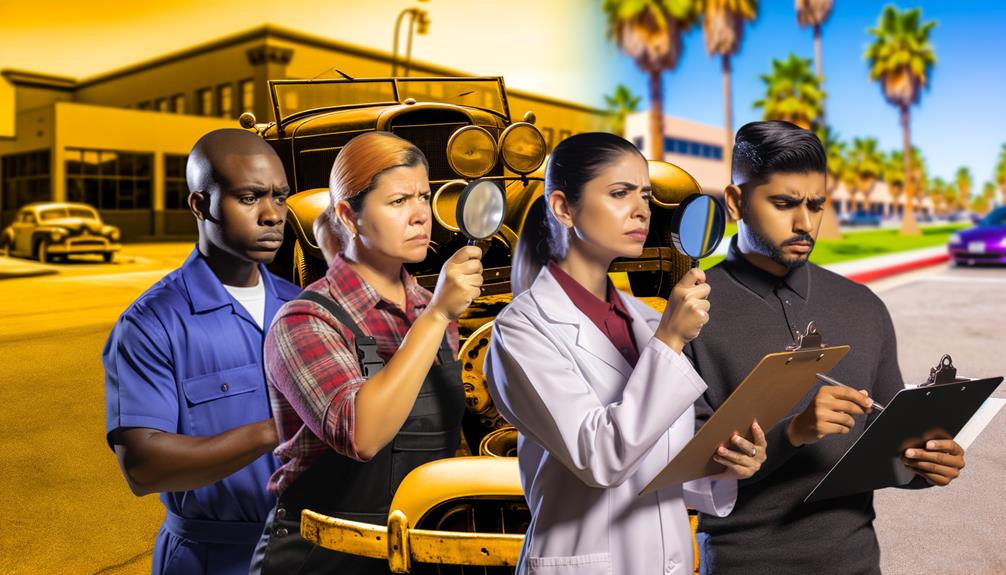
Despite the clear benefits that VIN verification brings to vehicle safety and legality in Orange County, the system faces several significant challenges that demand effective solutions. You've likely encountered these hurdles firsthand, particularly the misidentification of vehicle details during inspections.
To address this, the California DMV has ramped up the training and certification requirements for VIN verifiers. This ensures that only qualified personnel handle your vehicle's verification, reducing errors and enhancing trust in the process.
Moreover, if you're living in a remote area, you might've found it difficult to access verification sites. The solution? Mobile VIN verification services. These not only make the process more accessible but also cater to your need for convenience and freedom.
However, the challenge doesn't end there. Documentation delays often slow down the verification process. That's where enhanced public education steps in. Now, more comprehensive checklists and guidelines about required documents are readily available, helping you prepare better before your appointment.
Furthermore, collaboration with local law enforcement has been pivotal. This partnership ensures that vehicles suspected of fraud undergo rigorous checks, safeguarding you from potential legal and financial pitfalls associated with vehicle fraud.
Through these tailored solutions, VIN verification in Orange County is becoming more robust and user-friendly, directly addressing the challenges while respecting your freedom.
Community Involvement
The active participation of community organizations in Orange County has significantly bolstered the effectiveness of VIN verification initiatives aimed at curbing vehicle theft and fraud.
You've likely noticed how these efforts directly impact your freedom to own and operate your vehicle securely.
Here's how community involvement makes a difference:
- Collaborative Workshops: Local law enforcement partners with community groups to host informational workshops. You gain insights into VIN verification processes and vehicle safety, empowering you to protect your property.
- Volunteer Programs: Residents volunteer to assist in conducting VIN verifications for those unable to afford these services, including low-income families. This not only enhances community safety but also fosters a spirit of cooperation.
- Education Initiatives: Increased community outreach helps educate the public on the benefits of accurate vehicle documentation. You're better equipped to understand the critical role VIN verification plays in maintaining legal and secure vehicle ownership.
- Support from Local Businesses: Automotive service providers in the area contribute by offering discounted or free VIN verification services. This generous community service ensures everyone has access to essential vehicle safety measures.
Your involvement and support for these initiatives are crucial.
They ensure that VIN verification remains a robust tool against vehicle theft and fraud, ultimately protecting your freedom and rights as a vehicle owner.
Future Trends

As Orange County's population grows and more vehicles flood in from other states, you'll likely see a noticeable surge in the demand for VIN verification services. This growth necessitates adopting new technologies and enhancing regulatory frameworks to ensure efficiency and security.
Technological advancements, particularly the use of mobile apps and online platforms, are set to revolutionize how you access VIN verification services. These tools not only make the process more accessible but also significantly cut down on the time it takes to verify your vehicle's history.
Moreover, the integration of artificial intelligence and machine learning is poised to drastically improve the precision of these verifications, ensuring discrepancies in vehicle information are caught more effectively.
On the regulatory front, anticipate stricter guidelines designed to fortify security measures against vehicle theft and fraud. These changes will likely tighten the processes around how vehicles are checked and cleared in Orange County, keeping you safer.
Furthermore, as consumer awareness rises, expect increased educational initiatives focusing on the importance of VIN verification. These efforts aim to inform you about safeguarding your vehicle investments, promoting a community well-versed in the nuances of vehicle documentation and history.
Comparative Analysis
Efficiency in vehicle registration processes has significantly improved with the evolution of VIN verification in Orange County.
You've seen a shift from the traditional, often cumbersome method to a streamlined, technology-enhanced service. Here's a detailed comparative analysis based on the recent developments:
1. Mandatory Requirements: Previously, VIN verification was a more relaxed requirement, especially for local vehicles.
Now, it's mandatory for all out-of-state vehicles, enhancing theft prevention and ensuring compliance with California's DMV system.
2. Documenting Process: The use of the REG31 form allows for a detailed capture of vehicle specifics.
This precision is critical for maintaining accurate DMV records and prevents the mishandling of vehicle information.
3. Specialized Inspections: Initially, limitations were notable, especially for certain vehicle types like revived salvage or undocumented motorcycles.
Now, through necessary CHP referrals, these vehicles undergo thorough inspections, ensuring all criteria are met before registration.
4. Mobile Services: Quick VIN Verifications and similar providers now offer mobile services.
This flexibility caters to your need for convenience, allowing VIN verification at your location, which is a significant evolution from fixed-site inspections.
These enhancements ensure that your journey through vehicle registration in Orange County isn't only compliant but also liberally convenient.
Frequently Asked Questions
Is VIN Verification Required in California?
Yes, you're required to undergo VIN verification in California for vehicle registration, title transfers, and compliance with state regulations. This ensures fraud prevention and aligns with law enforcement and auto insurance requirements.
How Do I Find My VIN History?
To find your VIN history, use online VIN checks or VIN lookup tools. They'll detail the VIN registration process, explain VIN inspections, and highlight VIN fraud prevention, ensuring you comply with state-specific VIN laws.
What Is the History of the Vehicle Identification Number?
The VIN's history started in 1981 to uniquely identify vehicles, featuring a specific format to aid in tracking, enforcement, and database management, enhancing vehicle registration, theft prevention, and legal compliance across various jurisdictions.
What Is VIN Verification in Florida?
In Florida, VIN verification confirms your vehicle's identity, crucial for title transfers and registration. It prevents fraud, checks ownership history, and meets Florida regulations through a detailed inspection by authorized law enforcement or stations.
